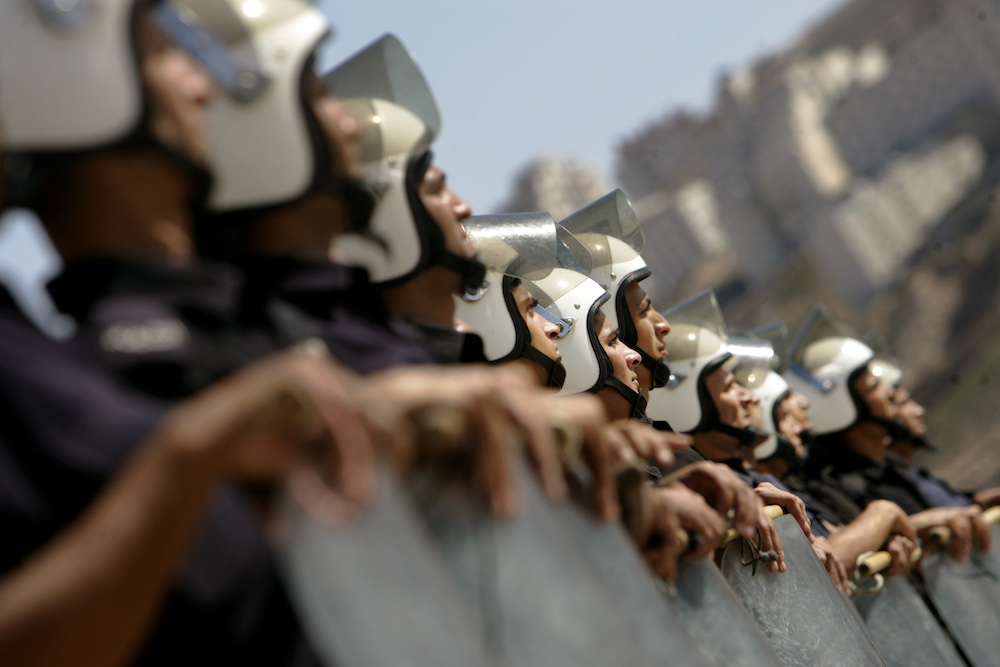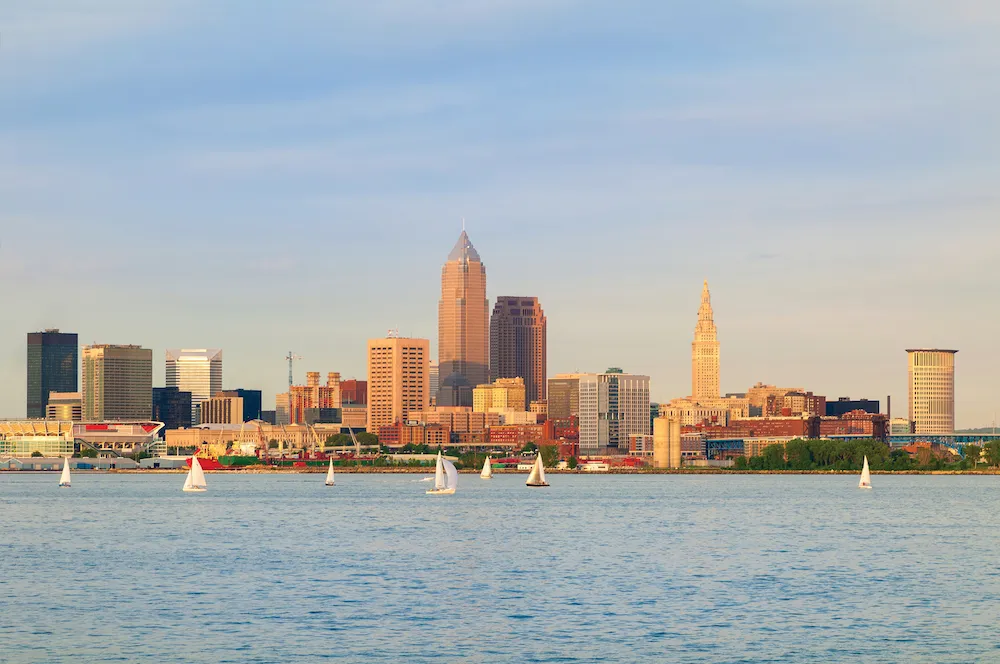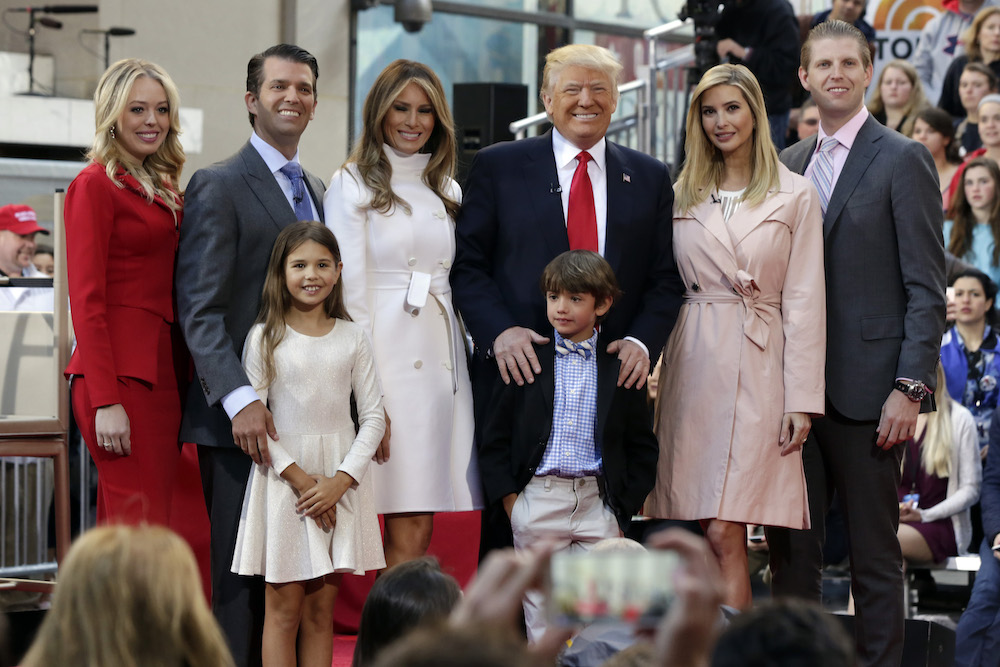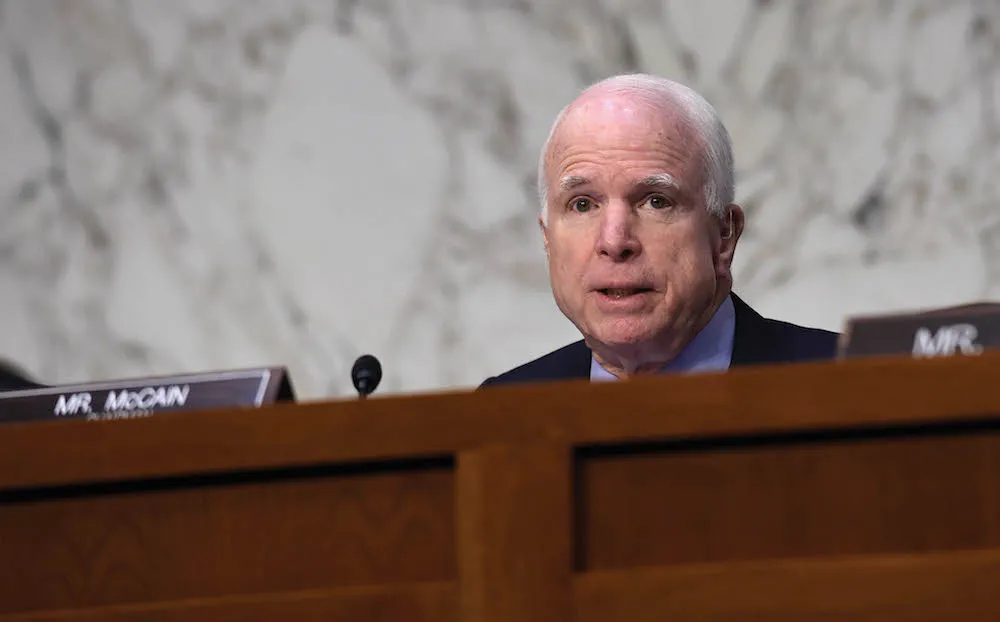Republicans are bracing for Donald Trump to crash their carefully choreographed convention in Cleveland like a bull in a china shop.
GOP insiders and organizers typically script every moment of the convention, and Trump’s flamboyant and aggressive style has introduced a wild card that many are just beginning to comprehend.
The drama promises to produce a reality television show unlike any other, the first real test of whether party insiders can work successfully with the ultimate outsider as the nominee.
While the prospect of a contested convention plummeted when Ted Cruz and John Kasich exited the race last week after losing in Indiana, the potential for trouble has morphed, but not necessarily diminished.
In anticipation of turmoil expected outside the convention hall, Cleveland began planning to purchase more body armor and prisoner vans shortly before Trump became the presumptive nominee.
The city recently published bids for 100 sets of body armor, 11 conversion vans that could be used to transport prisoners or house workspaces furnished with desks and plywood and 14 pickup trucks weighing up to 12,800 pounds, as the Cleveland Plain Dealer first reported.
These items are in addition to previous requests from Cleveland that reportedly included 2,000 sets of riot gear, 10,000 sets of plastic handcuffs, eight sets of mounted night vision goggles, 15 motorcycles and a horse trailer.
The convention has received the designation of a National Special Security Event from the federal government, which means the U.S. Secret Service assumes the lead role in coordinating the federal, state and local law enforcement operation on the ground.
But ensuring things go off without a hitch inside the convention hall and on television could become just as complicated. Previous conventions had a celebratory mood as the GOP sought to unite around its presidential nominee. In July, the convention will be much more tense as prominent Republicans threaten to turn their backs on the party because of its support of Trump.

The city recently published bids for 100 sets of body armor, 11 conversion vans that could be used to transport prisoners or house workspaces furnished with desks and plywood and 14 pickup trucks weighing up to 12,800 pounds. (AP Photo)
None of the living Republican presidents, or any of the GOP’s presidential nominees since the turn of the century, intend to attend this summer’s convention. The most recent nominee will be nonagenarian Bob Dole from 1996.
And just days ago, House Speaker Paul Ryan, who at the convention will serve as its chairman as he gavels open the event, said he’s not ready to support the would-be nominee.
As a result, the careful work of portraying a unified and positive face of the Republican Party to millions of viewers across the country and around the world will be especially difficult this time around.
The convention ordinarily follows a familiar pattern of programming spread across four days. Each day is designed with a specific purpose to turn the made-for-TV event into a launching pad for the GOP nominee, according to Republican consultants involved in the planning of the two most recent conventions.
But the typical arc of the convention may pose challenges given Trump’s starring role.
The first night is seen as “the framing night of the principles of the party,” which also showcases the strengths of the nominee, said Ed Goeas, the 2008 GOP convention program director and former Scott Walker campaign adviser.
“We’re looking at a Trump … or a Hillary that all have over 50 percent unfavorable with the voters, so a much different effort that you have to make as opposed to there’s a lot of people out there that don’t know our nominee, or know a lot about our nominee, that we need to do [at the convention],” Goeas said. “So I mean it’s problematic from so many different angles.”
The second day often focuses on the negatives of the Democratic opponent and a keynote speaker. Viewers should expect to hear quite a bit about “crooked Hillary” Clinton.
The third day focuses on the vice presidential selection, while the fourth day’s main event is the party’s presidential nominee delivering a speech.

The typical arc of the convention, which ordinarily follows a familiar pattern of programming spread across four days, may pose challenges given Trump’s starring role. (AP Photo)
Should external circumstances, such as natural disasters, require the convention to condense its schedule, the GOP knows how to adapt. The 2008 and 2012 conventions both coincided with hurricanes threatening to interrupt the planned festivities.
In 2008, Goeas said, the party chose to cut down on promotional videos and prioritized speakers who were “everyday people” while eliminating elected officials’ speaking time.
“We were writing the program on the run,” Goeas said. “Obviously we felt good about the way it turned out — it was that 10-day period coming out of the convention was the only time before or after that [John] McCain led Obama in the national polling, so we got a good boost from it.”
In 2016, the Republican National Committee began working with the campaigns well in advance of the Indiana primary. Ron Kaufman, a former Mitt Romney adviser who helped run the 2012 convention, said the RNC made the convention’s hotel assignments near the end of April, which is an area where the presumptive nominee often takes charge.
Operating under the possibility of any of three candidates becoming the nominee has made things more complicated, but Kaufman insisted he believed the Republican Party was prepared for any outcome.
“What we have plans for is for running the show,” Kaufman said. “If it’s one ballot or 15 ballots, it doesn’t make any difference. At the end of the day, it’s just going to be a long night for the media. But it won’t really change anything vis-a-vis running the convention.”
Kaufman, who has an informal role in the event’s planning, said the convention seems to be coming along “surprisingly well” given the circumstances.
Even if a deadlocked convention extended the event’s duration into the week of the Democratic convention, Kaufman said he thinks it would have yielded positive results.
“If that happened, they’d [the television networks] stay right with us because it’d be the best, highest viewed broadcasting in the history of the country probably,” Kaufman said. “It’d be a real reality TV show, not a fake one.”
Unlike in past cycles, the certification to the states to get the party’s nominee on the ballot arrives well after the convention’s stated end date, Goeas noted. If a contested convention were to have emerged, the extended deadline would allow for more time to select a nominee.

If Trump’s favorability numbers continue to languish, the GOP may spend more time trying to prevent a dip in the polls after the convention than looking for a bump. (AP Photo)
Jeff Larson, the CEO of the 2016 convention, will be the man behind the curtain running the show. Larson is a former chief of staff for the RNC and served as a senior adviser on both of George W. Bush’s presidential campaigns. Goeas and Kaufman believe he’s prepared to handle anything that could come his way.
Steve King, a Wisconsin national committeeman, and Jo Ann Davidson, an Ohio national committeewoman, are co-chairs of the committee on arrangements that is also responsible for helping plan and manage the convention.
The unusually competitive primary has not gotten in the way of the Republican Party’s plans, according to Kirsten Kukowski, communications director of the RNC’s committee on arrangements that organizes the convention.
“We are on track with our planning in previous conventions,” Kukowski said in an email. “We will now begin working with the Trump campaign to bring them up to speed on the months of planning that’s been happening in Cleveland so we can unite and make the convention a success for the Republican Party and nominee.”
But this year’s convention has already faced a spate of negative attention amid the news that sponsors were considering ditching the GOP convention. The grassroots empire of Charles and David Koch has already canceled its political network’s plans to be part of the festivities in Cleveland.
As the Washington Examiner previously reported, the brothers’ organizations thought it difficult to get their message out given the controversy surrounding the 2016 presidential race. Other donors and sponsors may choose to follow the Koch brothers’ lead.
For example, Coca-Cola has reduced its donation for the Republican convention, as the New York Times reported. Coca-Cola made a $660,000 contribution to the 2012 Republican convention, but confirmed it has given just $75,000 toward the 2016 convention in Cleveland.
And senatorial candidates across the country are threatening to skip the Republican Party’s convention. Arizona Sen. John McCain, the 2008 GOP presidential nominee who is now running for re-election, signaled he would skip the convention. Other Republican senators facing tough re-election battles are ready to do likewise, including Illinois Sen. Mark Kirk and New Hampshire Sen. Kelly Ayotte.

Arizona Sen. John McCain, the 2008 GOP presidential nominee who is now running for re-election, signaled he would skip the convention.
Former Florida Gov. Jeb Bush, who sought the 2016 presidential nomination, will not attend the convention either.
But with Trump poised to earn a majority of delegates’ backing necessary to win the nomination, his supporters no longer seem ready to abandon the GOP.
Roger Stone, a former Trump adviser and populist provocateur, said his “Stop the Steal” march would become a victory rally in Cleveland if Trump hits the 1,237 delegates needed to win the nomination on the first ballot. Stone’s group has begun the permitting process and is actively seeking places to house the thousands of marchers it expects to attract to Cleveland.
“What we want to show the Republican bosses is the energy of people, the dedication they will be losing if they steal this nomination from Donald Trump,” Stone said.
There is still much of the planning yet to be done for the 2016 convention. But the only certainty seems to be that this convention will look and sound unlike any other.
In a recent interview with the Washington Post, Trump said he thought it “very important to put some showbiz into a convention, otherwise people are going to fall asleep.” He also called the 2012 convention “the single most boring convention I’ve ever seen.”
Those watching the 2016 convention or experiencing it firsthand may witness a once-in-a-lifetime event. Former RNC chairman Haley Barbour said it’s “unlikely that we will see something like this [nomination] again.”
“It doesn’t resemble anything that anybody living has encountered for the guy with the most delegates to be somebody who’s never run for anything, never voted in a Republican primary for president in his life,” Barbour said. “Donald Trump has the highest negative unfavorable opinion ever measured in polling for a potential nominee for president, and Hillary Clinton would be the highest if it weren’t for Donald Trump.”
If Trump’s favorability numbers continue to languish, the GOP may spend more time trying to prevent a dip in the polls after the convention than looking for a bump.
While some onlookers expected the RNC would need to combat a contested convention, it now appears the committee may need to show it’s capable of effective crisis management that will unify its party.

